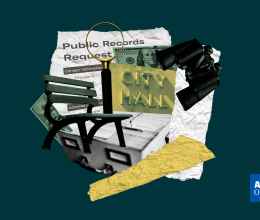CLEVELAND- The American Civil Liberties Union of Ohio called for immediate passage of two bills by the U.S. House and Senate. The first is the Ledbetter Fair Pay Act, which corrects a recent Supreme Court decision that made it more difficult for employees to take legal action if they had been discriminated against by receiving lower wages. The second bill is the Paycheck Fairness Act, which increases protections under the Equal Pay Act and helps women combat discrimination in the workplace.
ACLU of Ohio Executive Director Christine Link said, “It is critical that Congress take immediate action to pass these bills. It has been nearly two years since the U.S. Supreme Court’s disastrous decision against Lily Ledbetter. Every day that goes by is one in which Americans are left defenseless against big businesses that may discriminate without fear of any penalty.”
In 2007, the U.S. Supreme Court ruled in Ledbetter that an employee must file a challenge against discriminatory wages 180 days from the time they first occur, whether the employee is aware of the pay discrepancy or not. In the case of Lily Ledbetter, she was an employee for Goodyear who worked for years without knowledge that she was paid less than her male counterparts even though they performed essentially the same tasks. The decision by the U.S. Supreme Court contradicted decades of precedent that asserted an employee must file a grievance 180 days from the time they were first aware of the discrimination.
Link added, “The U.S. Supreme Court created a huge loophole allowing businesses to get away with unfair discrimination by simply keeping their dirty tactics secret for a few months. It is time for Congress to restore and expand workers’ rights and hold businesses that discriminate accountable.”
The Lily Ledbetter Fair Pay Act was passed by the U.S. House during the 110th Congress, but was never voted on by the U.S. Senate. The bills were reintroduced at the start of the 111th Congress. The U.S. House is expected to vote on it as early as Friday, January 9 and the U.S. Senate as early as the following week.






